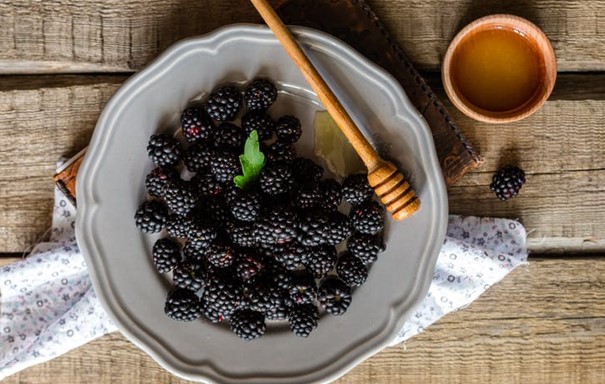
Oxidative Stress: Stress at the cellular level
Oxygen plays a crucial role for nature and is the elixir of life. But oxygen can also trigger reactions that one would like to do without. Flowers wither, harvested fruit becomes unsightly, and oil turns rancid – free radicals and oxidative stress are squarely the culprits for these reactions.
What are “free radicals”?
“Free radicals” can be increased by complex metabolic processes or by various other circumstances, such as intensive sun exposure. More precisely, these are atoms or molecules with at least one or more unpaired electrons – which are therefore particularly reactive. These special molecules thus pose a potential danger to our cells and the body.
In order to protect the organism from harmful free oxygen radicals, very complex protective mechanisms exist. If the interplay of free radicals and the body’s own protective mechanisms is out of balance, the damaging effect of the radicals predominates causes oxidative stress.
Oxidative stress – a radical risk
In our body, there should be a balance of oxidants and antioxidants, which must be maintained. If one speaks of oxidative stress, then it is an imbalance between oxidative and antioxidant processes, which is triggered by free radicals.
Can our body protect itself from oxidative stress?
The good news: Yes, our body is able to protect itself. The balance between the free radicals and antioxidant protection systems is particularly important when protecting our bodies from oxidative stress. These radical scavengers are mainly found in fresh fruits and vegetables, but high-quality vegetable oils are also excellent suppliers. Vitamins C and E as well as the trace elements zinc, selenium, manganese, and copper can specifically contribute to the protection of cells from oxidative damage. 1 Natural accompanying substances of vitamin C, the so-called “bioflavonoids”, also support the absorption of vitamin C in the body. Vitamin B2 (riboflavin) is just as necessary for antioxidant cell protection, especially in its active form, riboflavin-5-phosphate. 2

Free Radicals & Skin Aging
Oxidative stress can damage collagen structures and thus also has an influence on skin aging. Therefore, it is important to pay attention to a balanced diet and an adequate supply of antioxidants (ex: vitamin C). The skin uses an antioxidant network to protect the cell structures from oxidative stress. Especially UV light (sunbathing), stress, and smoking are known as factors that can lead to premature skin aging due to the formation of free radicals. Due to the loss of collagen fibers and the reduced hyaluronic acid content in the skin, unwanted wrinkles occur over the years – our skin ages.
___________________________________________________________________________________________________________________________________________________________
“Oxidative stress can damage collagen structures and thus also has an influence on skin aging. 3”
___________________________________________________________________________________________________________________________________________________________
Optimal nutrition plays a huge role in wellness, especially heart health. There are many ways to support cardiovascular health, but vitamin K and omega-3s can be especially beneficial. Make sure you get enough of these powerful nutrients in your diet or with supplementation to help support healthy arteries and triglyceride levels.
Oxidative stress in sports
Scientific publications can prove that athletic training is good for health in itself, but on the other hand, oxidative stress can occur with increasing intensity and duration. Especially in the case of unusual and intense movements, the increased energy turnover can lead to a flood of free radicals. By slowly increasing the training intensity, the body’s own antioxidant capacity can also be steadily increased. A well-functioning protection system is particularly important for the athlete. The supply of antioxidants (ex: vitamin C, zinc) contributes to the protection of cells from oxidative stress and normal immune function.
Claudia successfully completed her studies in biochemistry and molecular biomedicine. But there is no standing still with her, she would like to keep learning. With her imaginative and loving nature, she likes to pass on her knowledge to others. In addition to her love of science, Claudia is an absolute animal lover.
+The views expressed in this article are those of the authors. They do not reflect the opinions or views of Pure
Encapsulations®.
1. National Research Council (US) Committee on Diet and Health. Diet and Health: Implications for Reducing Chronic Disease Risk. Washington (DC): National Academies Press (US); 1989. 14, Trace Elements. https://www.ncbi.nlm.nih.gov/books/NBK218751/
2. Suwannasom N, Kao I, Pruß A, Georgieva R, Bäumler H. Riboflavin: The Health Benefits of a Forgotten Natural Vitamin. Int
J Mol Sci. 2020 Jan 31;21(3):950. doi: 10.3390/ijms21030950. PMID: 32023913; PMCID: PMC7037471.
3. Rinnerthaler M, Bischof J, Streubel MK, Trost A, Richter K. Oxidative stress in aging human skin. Biomolecules. 2015 Apr
21;5(2):545-89. doi: 10.3390/biom5020545. PMID: 25906193; PMCID: PMC4496685.


 Facebook
Facebook Instagram
Instagram